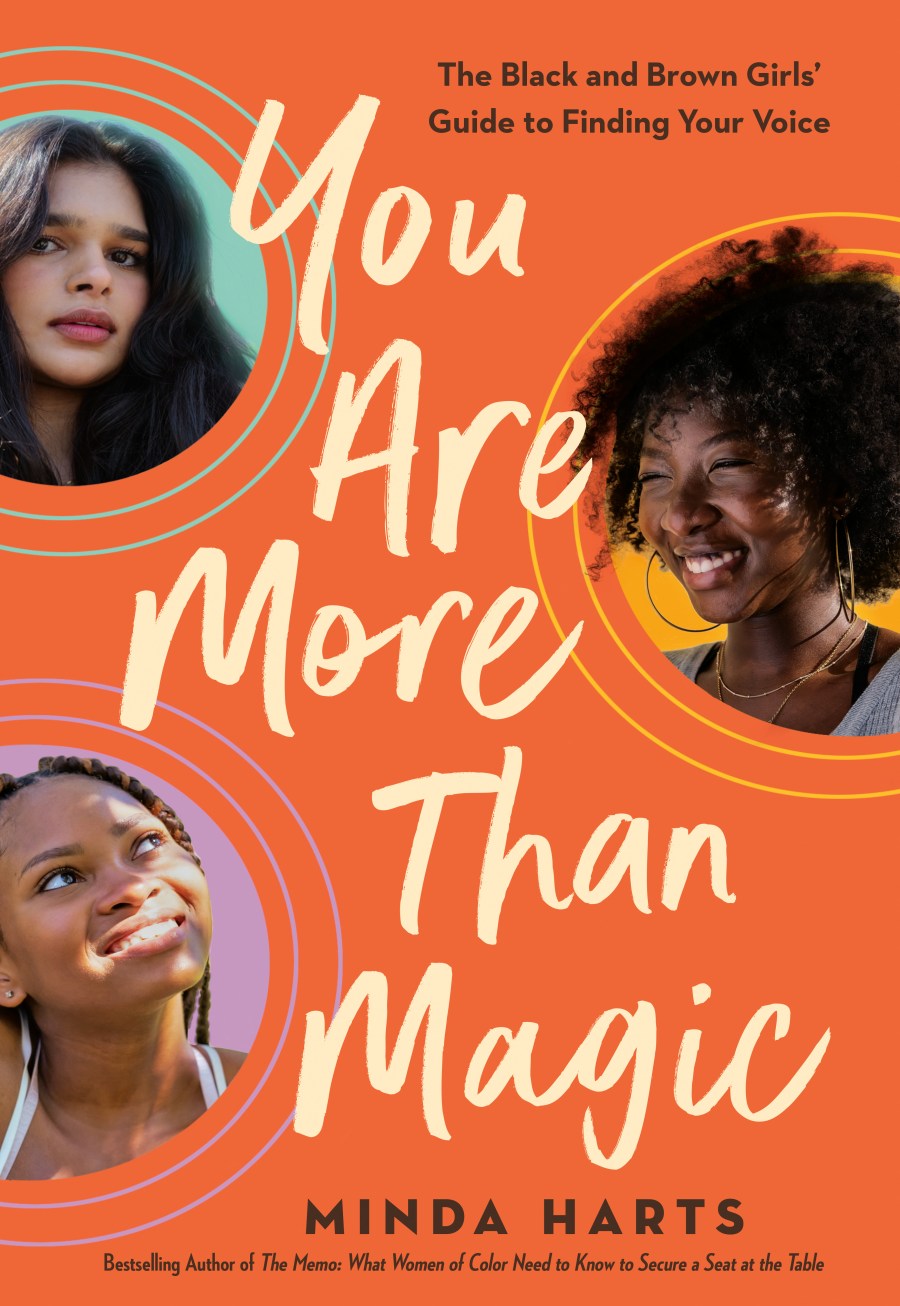At the age of 11, Minda Harts moved from her diverse neighborhood in California to a town in rural Illinois. The move changed her life forever. Growing up in a majority white town as a young Black girl she faced the ugly truths and hard lessons that come with constantly feeling like “the only one.”
That feeling continued when Harts grew up and went to work in corporate America for 15 years. During that time, she often felt like she was the only Black woman in a professional setting.
It’s part of the reason why Harts wrote her new book, “You Are More Than Magic: The Black and Brown Girls’ Guide to Finding Your Voice,” where she talks about her own stories of success and missteps that helped her grow. It’s the advice she wishes she had as a young woman of color.
“What did 15-year-old Minda need to hear? … Because maybe, had there been some tools in my tool kit, I wouldn’t need so much healing down the line,” said Harts, who also founded The Memo LLC, a career development company for women of color.

In her book, Harts gives actionable advice to young women of color and provides the tools they need to help gain confidence and let their voices be heard.
Know Your Value recently spoke with Harts to discuss her first-ever, young adult book. Below is the conversation, which has been edited for brevity and clarity:
Know Your Value: When people are in bookstores, and they see the title “You Are More Than Magic,” what do you want them to understand about that phrase?
Minda Harts: I want them to know that they have everything that they need right inside of them. And that there are people … rooting for their success…As a young, brown girl in a predominantly white space in school, I didn’t always feel like I belonged, and I felt like I had to be like somebody else and I want our girls to know they are fine just the way they are.
KYV: You say self-advocacy is tied to self-esteem and that a part of self-advocacy is negotiating your salary, even if it’s your first job. In the book, you write, “if we never advocate for ourselves, we hurt not only ourselves but the future generations of women of color that would benefit from our courage.” Tell us more about that.
Harts: Sometimes, when we’re young, we feel like we have to be just grateful for what we get. And [we take that mindset] into our adulthood. You want to start establishing that, ‘I know my worth’ from [the beginning], even if it is an hourly job at a chain.
I want young girls to know, we may not be able to control what someone’s response is to us, but we can control … our research (our homework) around the matter and then we present our case. And we can’t be mad at ourselves for trying. You know that old saying, ‘A for effort.’ We can give ourselves the A because we gave the effort and then people know where our boundaries are.

KYV: You say you can choose to react to rejection with an “empire state of mind” or an “enemy state of mind.” What’s the difference?












